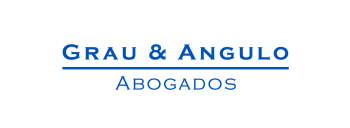On July 20 2017 the Supreme Court confirmed a Zaragoza Court of Appeal decision of December 17 2014 and acknowledged a US company's legal standing to file unfair competition claims. The US company had operated in the Spanish market through a Spanish company, which was its exclusive licensee.
In 2006 a US pipe-cleaning company which owned a specific system (ie, know-how), a US patent and two EU trademarks granted a Spanish company an exclusive licence to use its know-how and trademarks.
In 2011 a breach of contract occurred, which led to its termination. The former Spanish licensee subsequently incorporated a third company, to which it transferred the know-how protected by the confidentiality clause of the terminated contract.
The US company filed court actions against both companies and the natural persons concerned on the basis of Articles 13 (trade secret infringement) and 14 (misuse of an industrial or business secret) of the Unfair Competition Act.
A number of defendants raised an objection regarding the plaintiff's lack of legal standing to sue. They considered that the plaintiff had not participated in the Spanish market until the creation of its own subsidiary in 2012, citing the effects of Article 33 of the Unfair Competition Act.
Article 33 establishes that any natural or legal person can file an unfair competition claim if:
- it participates in the Spanish market; and
- its economic interests have been directly affected or threatened by the act of unfair competition.
The Zaragoza Commercial Court and the Zaragoza Court of Appeal acknowledged that the plaintiff had legal standing to file unfair competition claims, as it had operated in the Spanish market through its exclusive licensee. Further, the plaintiff had clearly shown an interest in protecting its know-how, taking into account that disclosure of such know-how would prevent it from competing in the Spanish market again with the same conferred advantage.
Thus, the defendants were found guilty of:
- trade secret infringement (Article 13 of the Unfair Competition Act); and
- misuse of such trade secrets (Article 14 of the act).
One of the defendants filed a cassation and a procedural infringement appeal before the Supreme Court.
In its decision on the lack of legal standing to sue raised by the defendant in the cassation appeal, the Supreme Court stated as follows:
- The notion 'participating in the market' provided by Article 33 should be construed in terms of the specific act of unfair competition in order to prevent a strict literal approach leading to an absurd situation in which the holder of the economic interest directly affected by the acts of unfair competition has no legal standing to sue.
- The plaintiff in the case at hand could be considered to have been involved in the Spanish market as the provision of the exclusive licence for its know-how to the Spanish company was a form of entering and participating in the market.
- The trade secret infringement had directly damaged the US company's economic interest in its own know-how.
Ultimately, the Supreme Court confirmed that the US company had fulfilled the requirements of Article 33 of the Unfair Competition Act and dismissed the appeals, confirming the judgments of the Zaragoza Commercial Court and the Zaragoza Court of Appeal and upholding the findings of trade secret infringement and the misuse of trade secrets.
The Supreme Court's interpretation has favourably clarified that active foreign companies doing business in Spain have legal standing to sue for certain acts of unfair competition.
The importance of this judgment lies in its departure from previous case law, which considered that a foreign company did not participate in the Spanish market or have its economic interest affected if it employed another company to distribute and commercialise its products in Spain. This former case law denied foreign companies' legal standing to sue even when they had a Spanish subsidiary trading in Spain.
As regards direct damage, previous case law considered that although acts which adversely affect a subsidiary company also affect the parent company and other companies in the group, this was insufficient to establish the parent company's legal standing, as it narrowly construed Article 33 of the Unfair Competition Act in the sense that it was not directly affected.
In its judgment, the Supreme Court emphasised the need to overcome excessively literal interpretations of rules where they may lead to absurd outcomes.
This article was first published by the International Law Office, a premium online legal update service for major companies and law firms worldwide. Register for a free subscription.
For further information on this topic please contact Paula Gutierrez at Grau & Angulo by telephone (+34 93 202 34 56) or email ([email protected]). The Grau & Angulo website can be accessed atwww.gba-ip.com.



